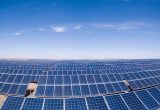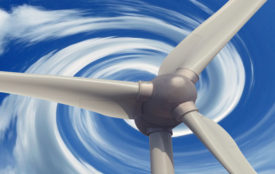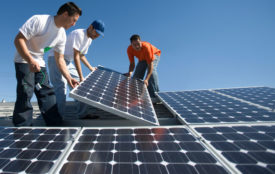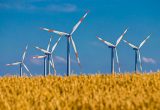Global energy efficiency progress is accelerating, signalling a potential turning point after years of slow improvement
Government ambition on efficiency has grown in 2022 as fuel prices soared, with many major policies, spending commitments and public campaigns launched.
Energy efficiency actions have accelerated globally in 2022 as governments and consumers have increasingly turned to efficiency measures as part of their responses to fuel supply disruptions and record-high energy prices, indicating a potential turning point after several years of slow progress.
Global investments in energy efficiency – such as building renovations, public transport and electric car infrastructure – reached USD 560 billion in 2022, an increase of 16% on 2021, according to the IEA’s latest market report, Energy Efficiency 2022.
Preliminary data indicate that in 2022 the global economy used energy 2% more efficiently than it did in 2021, a rate of improvement almost four times that of the past two years, and almost double the rate of the past five years. If the current rate of progress can be built upon further in the coming years, then 2022 could mark a vital turning point for efficiency, which is one of the key areas for international efforts to reach net zero emissions by 2050.
The IEA analysis found that, thanks to energy efficiency actions taken since 2000, total energy bills in IEA countries in 2022 are set to be USD 680 billion less than they would have been otherwise – or around 15% of their total energy expenditure this year – with past investments in building insulation and efficient cars saving many consumers thousands of dollars each year.
The global energy crisis sparked by Russia’s invasion of Ukraine has dramatically escalated concerns over energy security and the inflationary impact of higher energy prices on economies and people’s livelihoods around the world. The IEA report stresses that more efficient use of energy is the first and best response.
“The oil shocks of the 1970s led to a massive push by governments on energy efficiency, resulting in substantial improvements in the energy efficiency of cars, appliances and buildings,” said IEA Executive Director Fatih Birol. “Amid today’s energy crisis, we are seeing signs that energy efficiency is once again being prioritised. Energy efficiency is essential for dealing with today’s crisis, with its huge potential to help tackle the challenges of energy affordability, energy security and climate change.”
This year’s improvement comes after Covid-19 led to two of the worst years ever for global energy efficiency progress, with annual gains falling to around 0.5% in 2020 and 2021. Key factors included a higher share of energy-intensive industry in energy demand as other sectors contracted and a slowing pace of retrofits and upgrades in buildings and factories. Energy efficiency progress had already slowed before the onset of the pandemic, with the global rate of improvement falling from 2% in the first half of the last decade to 1.3% in the second half.
Efficiency improvements need to average about 4% a year this decade to align with the IEA’s Net Zero Emission by 2050 Scenario. There are encouraging signs of progress. The electrification of transport and heating is accelerating, with one in every eight cars sold globally now electric, and almost 3 million heat pumps set to be sold in 2022 in Europe alone – up from 1.5 million in 2019 – as they become an increasingly cost-effective heating source. Existing building codes are being strengthened and new ones are being introduced in emerging and developing economies, while a rising wave of energy saving awareness campaigns is helping millions of citizens better manage their energy use. All governments in Southeast Asia, for example, are now developing policies for efficient cooling, vital for a region with one of the fastest rates of growth in electricity demand.
This year has been marked by several significant policy and spending announcements that point to continued efficiency investment and progress for years to come. These include the Inflation Reduction Act in the United States, the European Union’s REPowerEU plan and Japan’s Green Transformation (GX) programme, which add up to hundreds of billions of dollars in spending on more efficient buildings, cars and industries over the coming years. However, these packages – like much of energy efficiency investment more broadly – are concentrated in advanced economies, and much greater investment is needed in emerging and developing economies.
To coincide with the publication of Energy Efficiency 2022, the IEA also announced today that its 8th Annual Global Conference on Energy Efficiency will take place on June 6-8, 2023, in Paris. The event will be hosted by France’s Minister for Energy Transition Agnès Pannier-Runacher and IEA Executive Director Fatih Birol, and is being held in partnership with Schneider Electric. The Global Conference provides a high-level forum for ministers, CEOs and other senior leaders from around the world to share views on the latest developments in energy efficiency. It will build upon the topics examined in Energy Efficiency 2022 and consider how themes such as electrification, digitalisation and finance can boost efficiency to address today’s global energy challenges. The 7th Global Conference, held in June 2022 in Denmark, brought together over 400 leading figures, including ministers and senior officials from 26 countries.







